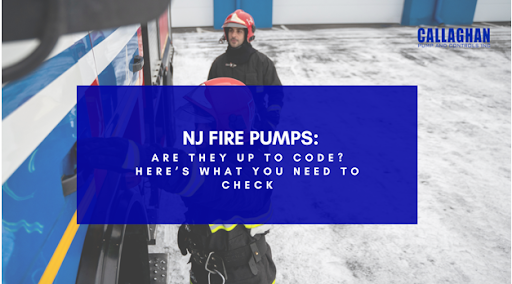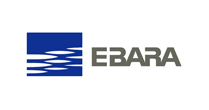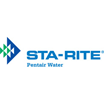
August 16th, 2024
Taking precautions is always better than a cure. Henceforth, when it comes to fire safety, you should not take it as a joke. One of the most important components in any building, whether commercial or residential, is a fire pump system. In New Jersey, strict regulations make sure that these systems are up to code to offer reliable fire protection. However, how can you be sure that your NJ fire pumps are up to standard? Let’s understand what you need to check to keep your building safe and compliant.
First, it’s essential to understand that NJ fire pumps are designed to provide the necessary water pressure to fire sprinkler systems and hose connections when the standard water supply is insufficient. New Jersey follows the National Fire Protection Association (NFPA) standards, specifically NFPA 20, which outlines the requirements for the installation and maintenance of fire pumps.
Here are the key areas you need to inspect to ensure your NJ fire pumps are up to code:
One of the most critical aspects of keeping your NJ fire pump up to code is regular maintenance and testing. NJ regulations require that fire pumps undergo an annual flow test to verify their performance. Additionally, a weekly churn test should be conducted to ensure the pump starts correctly and runs without issues.
Fire pumps rely on electrical connections to function properly. Inspect the wiring and connections to ensure they are secure, free from corrosion, and meet electrical code requirements. Any signs of wear, tear, or exposure should be addressed immediately to prevent failure during an emergency.
Proper alignment of the pump and motor is crucial for the efficient operation of the NJ fire pump system. Misalignment can lead to increased wear and tear, reduced efficiency, and even pump failure. Regularly check the alignment and make adjustments as necessary to keep the system running smoothly.
The intake and discharge valves must be fully operational and free of obstructions. These valves control the flow of water into and out of the pump. Ensure that they open and close properly and are not leaking. Any malfunctioning valves should be repaired or replaced immediately.
The pressure settings of your fire pump are crucial for maintaining adequate water flow during a fire. Check that the pressure settings are within the required range as specified by NFPA 20. Any deviations from the standard could compromise the effectiveness of your fire suppression system.
Compliance with NJ fire pump codes isn’t just about avoiding fines or penalties; it’s about ensuring the safety of your building’s occupants. Non-compliance can result in inadequate fire protection, which could lead to catastrophic losses in the event of a fire.
To ensure your fire pumps are up to code, work with certified professionals who specialize in fire pump inspection and maintenance. They can conduct thorough inspections, identify any issues, and perform necessary repairs or adjustments to bring your system into compliance.
Maintaining detailed records of all inspections, tests, and maintenance performed on your fire pump system is essential. These records will not only help you track the condition of your system but also serve as proof of compliance during fire safety audits.
Your NJ fire pumps are a vital part of your building’s fire protection system. Regular inspections, maintenance, and testing are essential to ensure they remain up to code and ready to perform when needed. By focusing on the key areas outlined above and working with qualified professionals, you can ensure that your fire pump system is both compliant and reliable.
Remember, the safety of your building and its occupants depends on your fire pumps being in top condition. Don’t wait for an emergency to find out if they’re up to code—take action today to ensure your fire protection system is ready to protect when it matters most. To know more about fire pumps, contact us today.
john@callaghanpump.com,
eileen@callaghanpump.com,
dan@callaghanpump.com,
sales@callaghanpump.com,
service@callaghanpump.com












